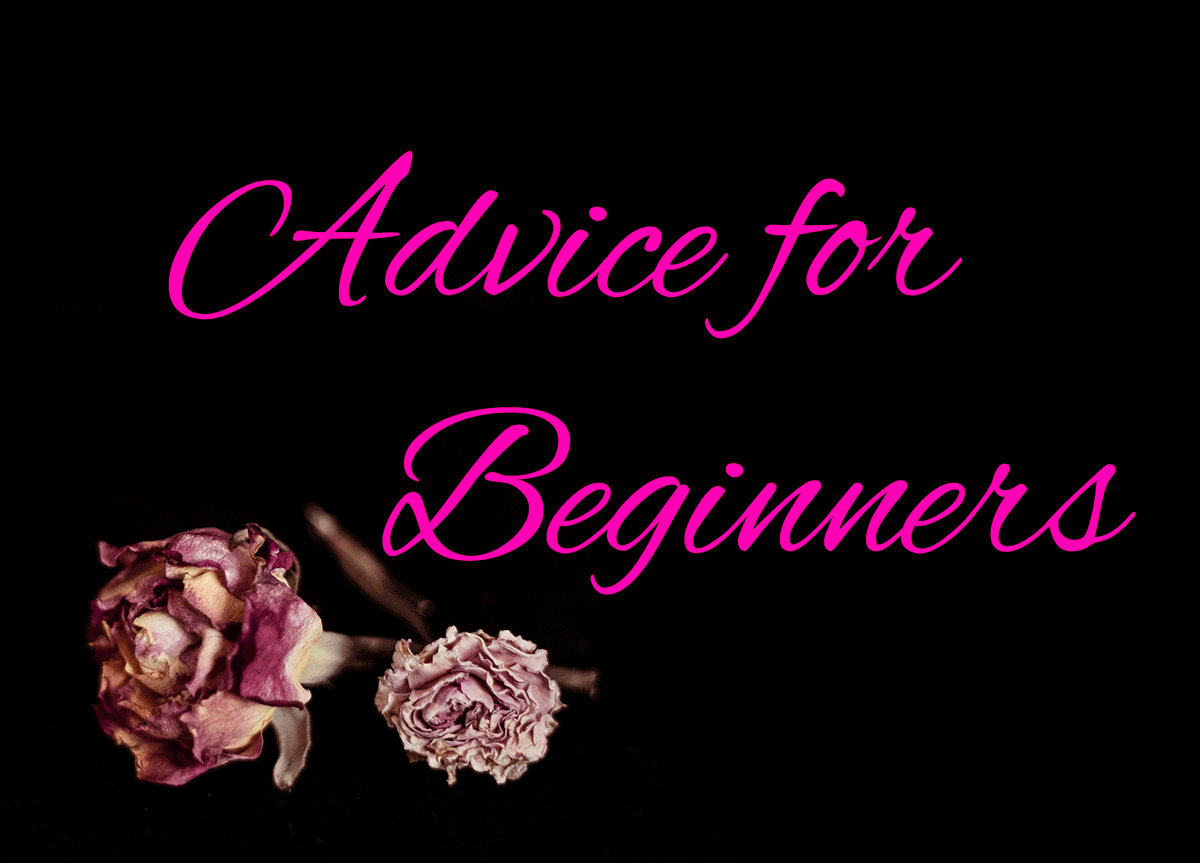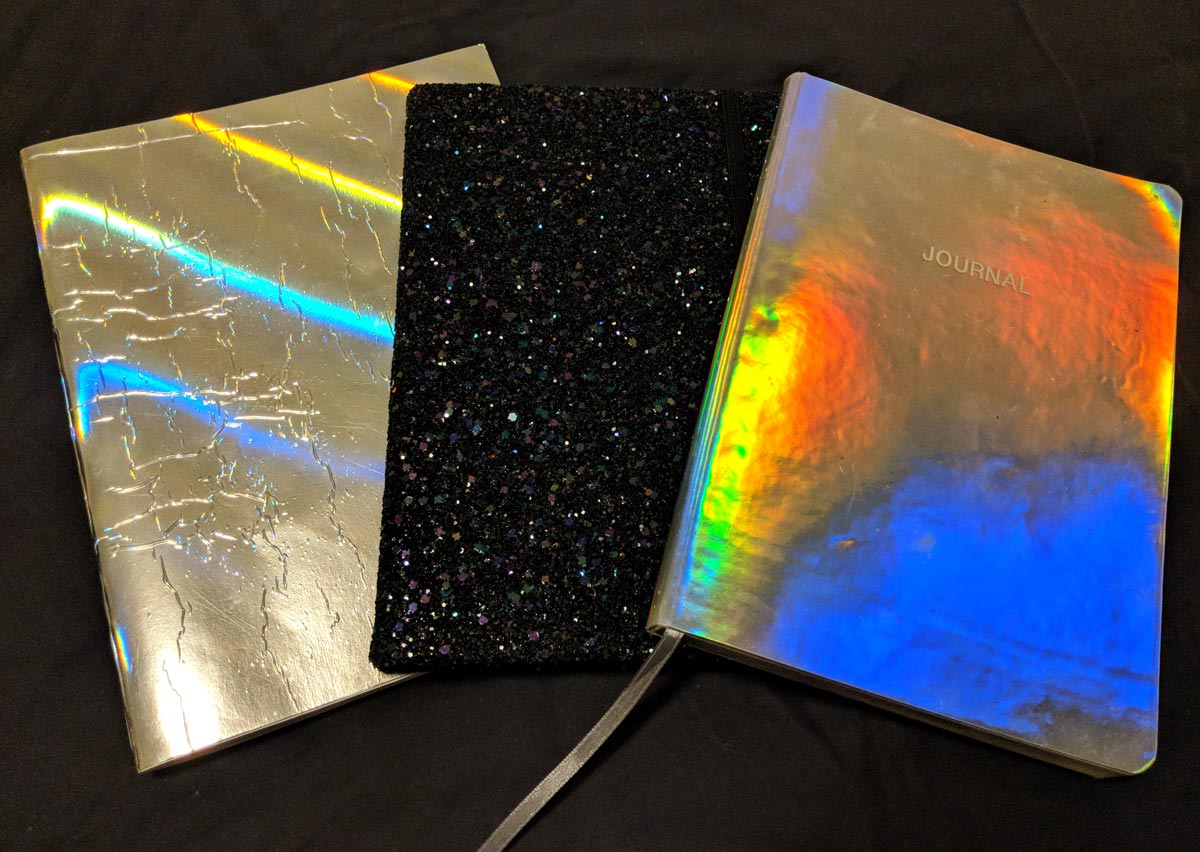Advice for Beginners
Wednesday January 29, 2020
I recently made this post for the influx of beginners to some witchy aminos, but thought I’d share here in case it’s helpful as well. It can definitely be overwhelming when you’re new to everything and really don’t even know where to start, so I thought I’d put together a few pointers to hopefully help out on your way.

Witchcraft vs Wicca vs Paganism
You’ll see these words a LOT, but not always with enough information to distinguish between them.
- PAGANISM refers to religions which are non-Abrahamic (the Abrahamic religions being Judaism, Christianity, and Islam), but particularly to polytheistic religions (ie religions with many gods) from pre-Christian Europe.
- NEO-PAGAN religions are newer religions based on older pagan religions or ideals, or around nature worship.
- WICCA is a neo-pagan religion (founded in the 1950s) which worships a God and Goddess and observes 8 seasonal celebrations (sabbats).
- WITCHCRAFT is a magical practice, which can be practised with or without religion.
Read (Critically)
We have access to so much information! However most information regarding witchcraft is some level of subjective, and a lot of folks present their take on the topic as objective fact, which can be super confusing when you’re first starting out. Read from a wide range of resources, and know that information will be conflicting, but that doesn’t necessarily mean one’s right and one’s wrong.
Paths and Labels
Everyone’s path is different - we’re different people with different lives and different histories. That said, there are a few more well-trodden directions than others, particularly for those with a teacher, or who follow a particular tradition. Some of these might also be inspired by the types of magic you choose to practice. There are a lot of words/labels people use to describe their practice to others, and lots of newbies feel like you need to jump straight in and find labels before you have any practice to describe. If you feel super drawn to one type of practice or another, that’s rad! Otherwise, I 100% recommend not picking one (ie being eclectic) and exploring everything that interests you. You’ll wind up where you belong, and limiting yourself early on isn’t usually too helpful.
Tools
What tools do you need to start? Literally none! The only thing you 100% need is your own mind and will, everything on top of that is just a bonus. Yes, a lot of us like to buy pretty things, but you really don’t need to. If I was going to suggest a “starter kit”: a notebook (see below), a pen (for taking notes, journalling, drawing sigils), some candles (cheap white candles will get you started with candle magic), salt (table/cooking salt is fine, just don’t use salt outside), herbs (whatever you’ve got in your kitchen/garden, or can buy rosemary cheaply from the supermarket to use in place of any herb), and maybe a quartz crystal if you want to go really wild (clear quartz can be used in place of any other crystal). Otherwise, you can use pretty well literally anything in magical practice, and also find pretty well anything you need from nature (even in the city, more often than you’d expect). Unless you’ve got the money to burn, I’d recommend not buying things unless you KNOW you’re going to use them.
Magical Books
Most folks will keep some kind of book to record the things they learn, do, and experience in their practice, often called a Books of Shadows (BoS) or Grimoire. A BoS is usually more personal (eg journalling, recording spellwork) than a Grimoire (more generic and objective information), but you can more or less use the terms interchangeably. You can create your book in literally any notebook, although some folks use a binder, or keep theirs digitally. You don’t need one, but it’s nifty to keep track of info, and have something to look back on later to see how far you’ve come!

You can read about my Magical Books here
Recommended Resources
- “Grovedaughter Witchery” by Bree NicGarran - There is honestly no book I can recommend more highly, if I had the funds I would honestly buy a copy for every new witch. She also has a podcast and is quite active on tumblr.
- Witchery by Juliet Diaz - I don’t rate this one quite as highly as Bree’s, because honestly that book is nigh on perfect as a beginner book, but as a popular, published book, it is much easier to find.
- “Supermarket Magic” by Michael Furie - A great intro to the practical side of witchcraft (and it uses things that you can buy from the supermarket).
- YouTube - (I’d recommend Witch of Wonderlust, The Green Witch, Thorn Mooney, Mintfaery, Scarlet Ravenswood, Avalon Cameron)
- Your library! - Check out any physical and digital collections you have access to (ebooks can be read on a phone/tablet/computer) - if they don’t have books specifically on witchcraft, they’re still likely to have books on astrology, herbalism, mythology, astrology, gardening, cooking, crafts, psychology, plant identification, local history, aromatherapy, philosophy, and possibly crystals, tarot, and other forms of divination.
- Internet Sacred Text Archive (digitised copies of old and publicly available works) - Be advised that these are old! This means most books on non-European cultures are written by outsiders and thus likely highly inaccurate/biased, and a lot of the content is highly problematic. But it can help to put together timelines of ideas, and books written about the authors' cultures can contain reasonable information.
- Project Gutenberg (free ebooks, mostly old (copyright expired)) - The advice on the Sacred Text Archive also applies here, be sure to approach information critically.
- Kindle store/app - Free on mobile, some free ebooks, but also free previews of books (so you can check it out before you buy a copy).
Hopefully this helps start some folk on their way!
